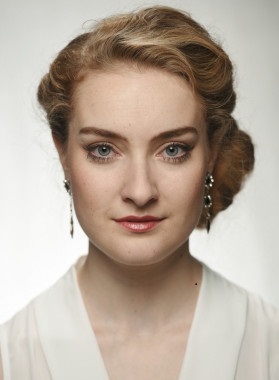
LEEDS Lieder Festival celebrated the start of its 20th anniversary season with a Schubertiade on its opening Sunday.
The common denominator of the lunchtime and evening recitals was the German soprano Nikola Hillebrand, with festival director Joseph Middleton as her piano partner.
We were told that she was experiencing the first signs of a cold, which entailed her cutting two songs. But we would not have guessed she was in any trouble.
She switched seamlessly between the two emotions of Rückert’s Lachen Und Weinen (Laughter
And Tears) before moving to two night songs. Mayrhofer was second only to Geothe in the number of his poems set by Schubert, who always seemed to find a brighter side to the poet’s generally depressive tendencies.
The low-lying Nachtstück (Nocturne) brought out the soprano’s confidential tone and her closeness to the text of Nachtviolen (Dame’s Violets), now in C major after the former’s C minor, was the epitome of intimacy.
In Gretchens Bitte (Gretchen’s Prayer), in the version completed by Britten, she plumbed the dramatic emotions of the girl’s remorse. But always she communicated directly with us.
The first three of Mignon’s songs from Goethe’s Wilhelm Meister were extremely well suited to the almost vibrato-free tone she brought to them, evoking the young teenager’s yearning. The fourth she omitted. Her sense of theatre was more than once threatened by Middleton’s quite forceful interjections, not quite what her announced vocal fragility needed.
Any such fragility vanished in Der Hirt Aus Dem Felsen (The Shepherd On The Rock), where they were joined by Oliver Casanovas Nuevo, principal clarinet of Opera North. It was impossible to believe that this was the work of a composer only a month from his death, so compellingly blithe and high-spirited was it here.
The trio blended superbly. The moment that crystallised the music’s pastoral poise was the clarinet’s mini-cadenza before the dancing finale, when Hillebrand’s carefree coloratura was effervescent.
The evening gala added the baritone of Rodney Williams and the pianist Roger Vignoles. It was dedicated to the memory of Jane Bonner, a faithful servant to Opera North for more than 40 years, latterly as company manager.
Middleton and Vignoles joined forces in the Fantasie in F minor for piano duet, D.940. It was not the tidiest account but it acted as a powerful elegy to her. Williams also comically imagined her presence as page-turner but without a shred of disrespect.
He and Vignoles opened the first lieder group, Figures In A Landscape. In the setting of Schmidt von Lübeck’s Der Wanderer, which rivalled Erlkönig for popularity during Schubert’s lifetime, Williams evoked a touching picture of alienation and Vignoles added to his plight; Ganymed provided a predictably upbeat antidote.
To Be Sung On The Water brought us Meeres Stille (Calm Sea), where Williams sustained a very steady line, without vibrato, and Auf Der Donau (On The Danube), perhaps Schubert’s most telling setting of Mayrhofer, in which we sensed the menace leading up to a spine-chilling Untergang (Destruction), totally at odds with the serene introduction.
There was a real feeling of partnership between Hillebrand and Middleton in Fischerweise (Fisherman’s Ditty), with the piano’s bass line reflecting the soprano’s smiles. Her facial features were equally important in Die Gebüsche (The Thicket), as she mirrored man’s connections with nature.
Hillebrand is a born communicator. The final group, Songs Of Night And Nature, had her sustaining a lovely line in Winterabend and finding a very personal touch in Berta’s Lied, with its sham lullaby.
Williams and Vignoles plumbed the mysteries of Nachtstück, equating sleep and death, with an astonishing intensity, but then escaping the fetters of night with a highly theatrical Waldesnacht. It was an evening packed with treasures.
Review by Martin Dreyer
